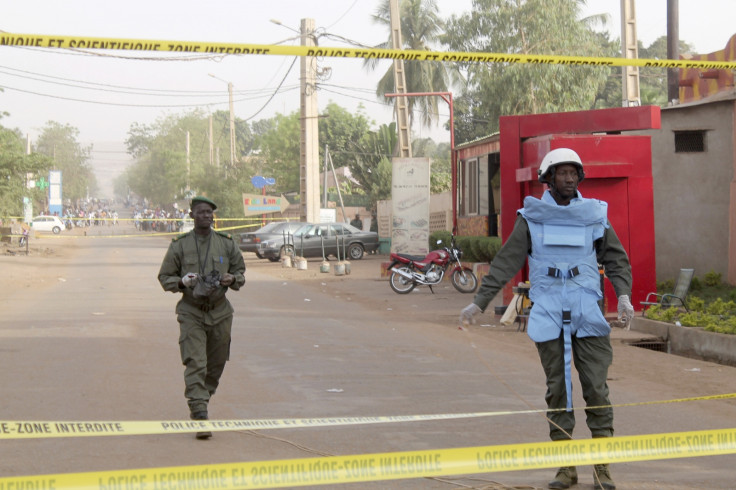Mali: Tuareg insurgent rocket attack kills UN peacekeeper and children

At least two children and a UN peacekeeper have been killed in an attack at a UN base in northern Mali.
More than 30 rockets were fired at the UN compound in the rebel stronghold of Kidal, northern Mali, AFP reported.
The civilian victims belonged to the Arab Kunta tribe, the UN mission in Mali (MINUSMA) said, adding that other people were injured in the attack.
"Once they had established from where the rockets were being fired, MINUSMA troops immediately returned fire two kilometres from the compound, at around 6:00 am," the force said in a statement.
"According to preliminary reports, one MINUSMA soldier died and eight others were injured. The shelling also claimed victims among the citizens of Kidal outside the compound, killing two and injuring four. MINUSMA strongly condemns these heinous terrorist acts, whose only goal is to thwart all the efforts currently under way to achieve lasting peace in Mali."
The UN Security Council condemned the attack and urged the Malian government to investigate. UN Secretary-General Ban Ki-moon said the killings were a "breach of international humanitarian law".
No group has claimed responsibility for the attack, but suspicion is likely to fall on the Tuareg separatists, which aim to overthrow the current government. The attack occurred a few days after five people, including some foreigners, were killed during heavy gun fire in a restaurant in the capital Bamako.
Tuareg's war for independence
Tuareg's second rebellion in Mali - the first of which occurred in 1960s - began in 2012, when Tuareg members of the National Movement for the Liberation of Azawad (MNLA) waged a war against the Malian government to win independence for the northern region of Azawad.
The revolts resulted in the ousting of then-president Amadou Toumani Touré and the suspension of the constitution of Mali.
Following the coup, the MNLA took control of three cities in the northern part of the country, and proclaimed Azawad's independence from Mali. Tuareg nationalists and Islamists struggled to reconcile their conflicting views for the new state and, after several clashes, the MNLA renounced their claim of independence for Azawad and engaged with the Malian government in negotiations on its future status.
Although MNLA, Islamists and the Malian government have reached a peace agreement, some factions are yet to sign it.
© Copyright IBTimes 2025. All rights reserved.






















